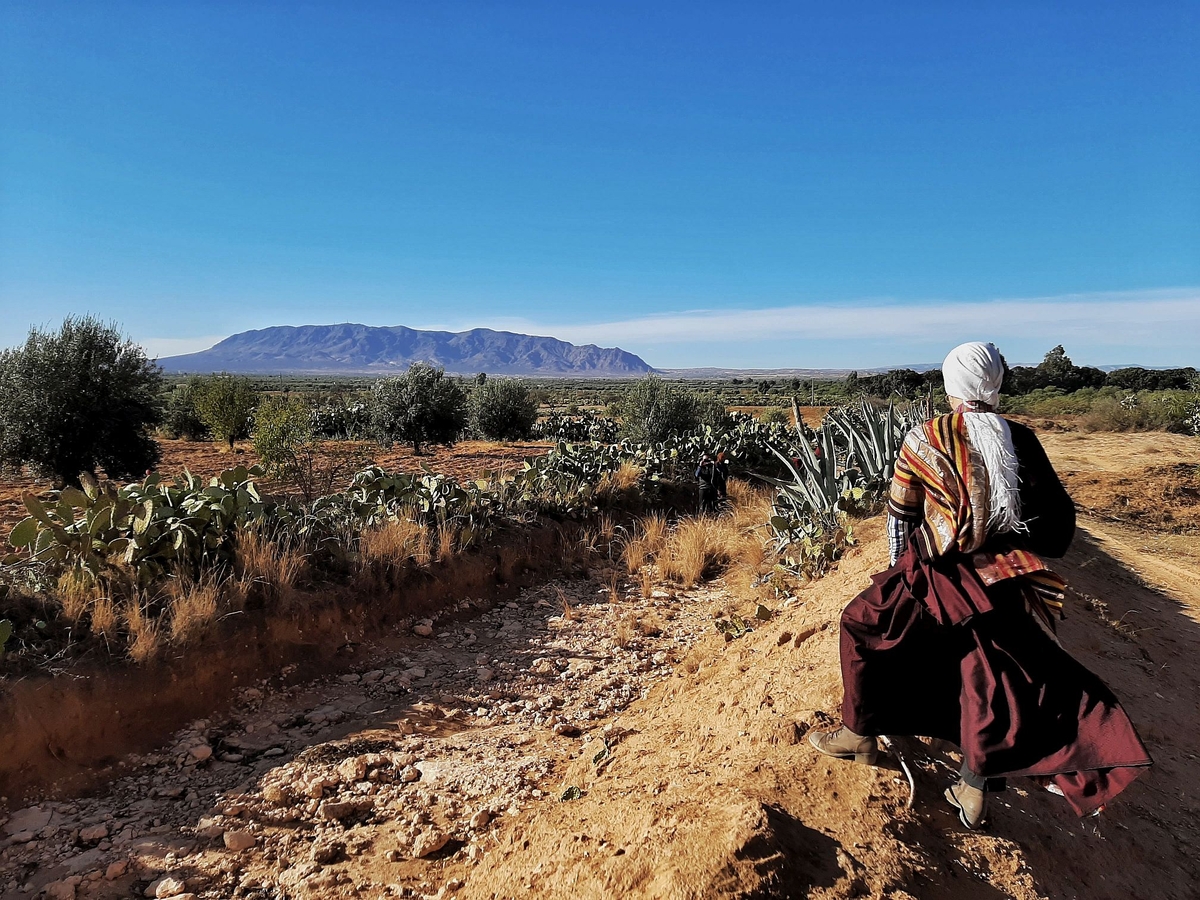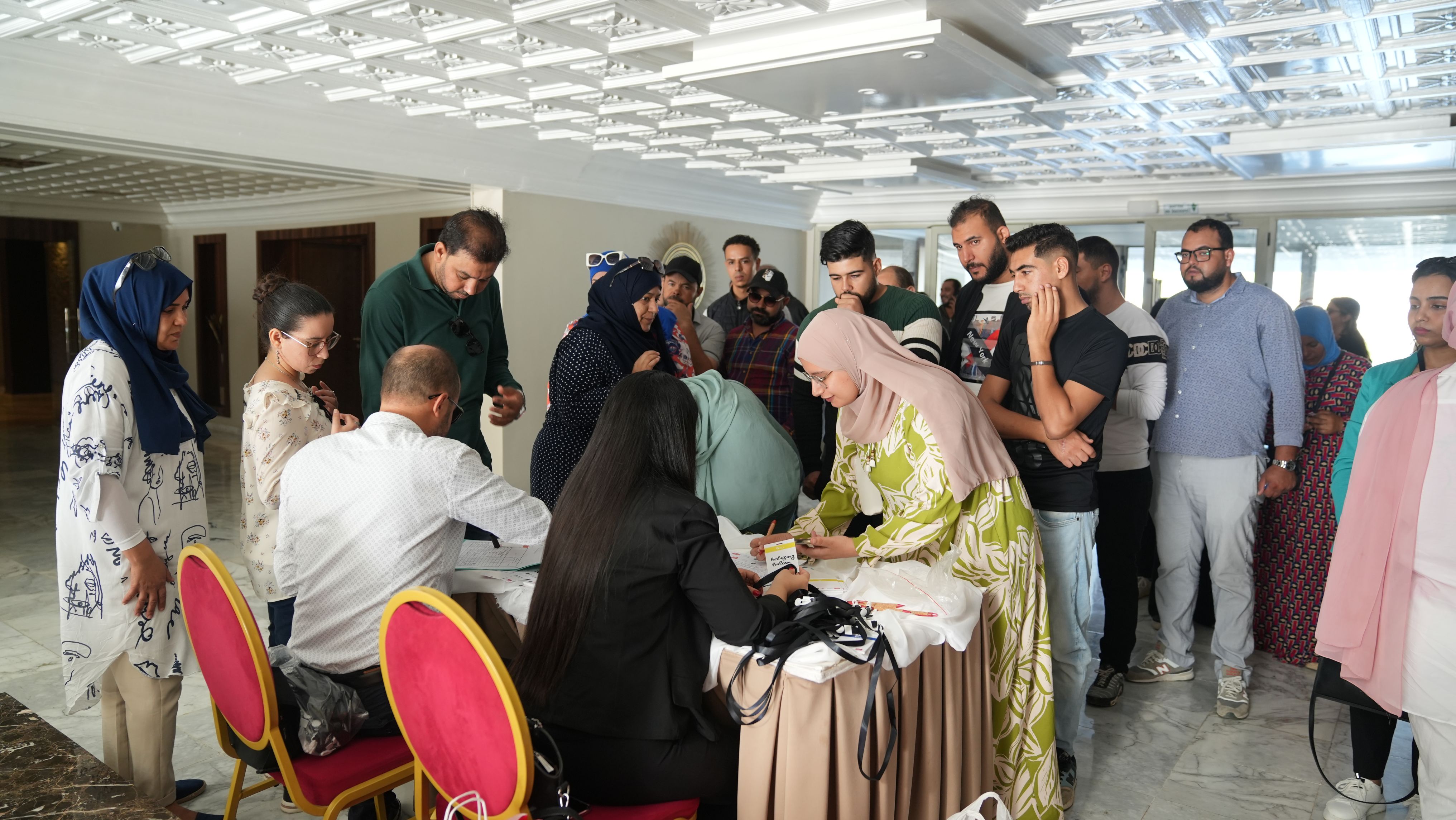Internal labour migration is a major phenomenon in Tunisia driven largely by socioeconomic disparities between parts of the interior and the more dynamic and prosperous coastal regions. Residents of interior regions are on average poorer, more likely to be unemployed or underemployed, and have limited access to quality basic services and infrastructure.
Rural migrants come to the city for better services, housing, and jobs.
Long-time urban dwellers are attracted to larger coastal cities in where jobs and living conditions are materially better. Local governments struggle to respond to the needs of all their residents while making their cities more attractive and inclusive.
The cities of Kairouan and Jendouba hold great potential for inclusive and sustainable development. Both cities and their surrounding areas are rich in cultural, artisanal, and natural attractions that are largely untapped. Kairouan is classified as a UNESCO world heritage site. A reinvigorated tourism sector could provide decent work opportunities and influence people’s decision to remain in the region.
With the support of the Swiss Agency for Development and Cooperation (SDC), Cities Alliance has partnered with civil society, local and regional authorities, and the private sector to foster transformative change in Jendouba and Kairouan. We are doing this by collaboratively developing mechanisms and opportunities to receive, manage and integrate labour migrants through three interlinked areas of intervention:
- Developing livelihood opportunities for young labour migrants by developing the tourism sector through training and financial support for tourism-related entrepreneurship.
- Designing strategies that promote Jendouba and Kairouan's tourism potential by focusing on the regions’ cultural and natural heritage; and
- Advocating and building the capacity of regional and local authorities to carry out gender-responsive processes that integrate migrants through policies that strengthen local participatory development
Promoting responsible tourism
The two projects were implemented between November 2019 and March 2022. An initial analysis of the economic and social potential for responsible tourism in Jendouba and Kairouan and their surroundings validated the feasibility of leveraging the region’s crafts, culture and heritage in ways that integrate rural to urban migrants into the economic and social life of cities.
The project provided onsite support to selected youth tourism entrepreneurs. We offered skills training and guidance on creating and operating tourism-related enterprises. Thereafter, youth entrepreneurs established a virtual support group where they could get information and share best practices.

In partnership with the Regional Office for Tourism in Kairouan (CRTK), the project identified and mapped out four previously disregarded areas that had potential as sites for eco-tourism. Thanks to this collaboration, the Tunisian National Office for Tourism developed the tourism routes in the municipalities of Ain Jeloula, Haffouz, and Oueslatia, an investment of TDN 20 million, or about. $7.5 million USD. The central government provided the municipality of Oueslatia with additional $107,000 to rehabilitate roads and pathways. A $10,000 investment in creating tourism circuits has yielded a further $140,000 USD in public funding.
The project had a social media component too. Entrepreneurs were featured in tourism videos that were produced by Tunisia’s best-known travel blogger and influencer. The videos generated over 120,000 views. Since 2021 these regions have seen strong growth in the number of visitors.
Kairouan built an artisanal market run by women whose goal is to strengthen the local economy and sustain its heritage of craft making. Five wooden market stalls were constructed providing space to sell to 25 local artisanal entrepreneurs.
The project’s implementation partner, the National Union of Tunisian Women, envisions creating more stalls and using the market to host festivals and promote the region throughout Tunisia. Jendouba has plans to build a similar market.
Local and regional authorities are playing a key role in implementing these projects and working to ensure their long term viability.
Diagnostics helped Jendouba and Kairouan identify their existing capacities and where they need to strengthen approaches to migration governance and management, as well as for integrating migrants economically, socially, and culturally. The cities also established multi-stakeholder forums to ensure an inclusive migration governance regime that builds upon effective partnerships and learning.





